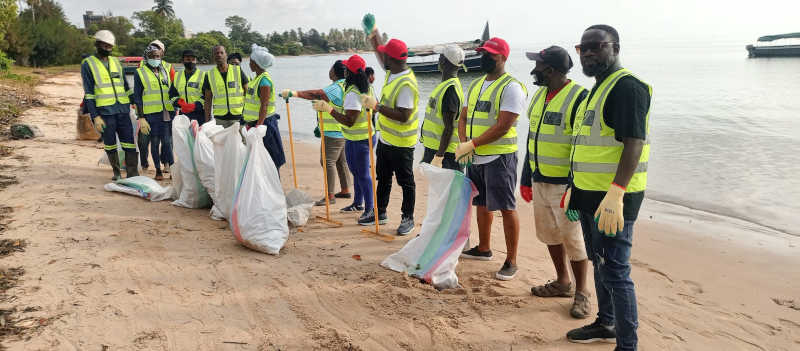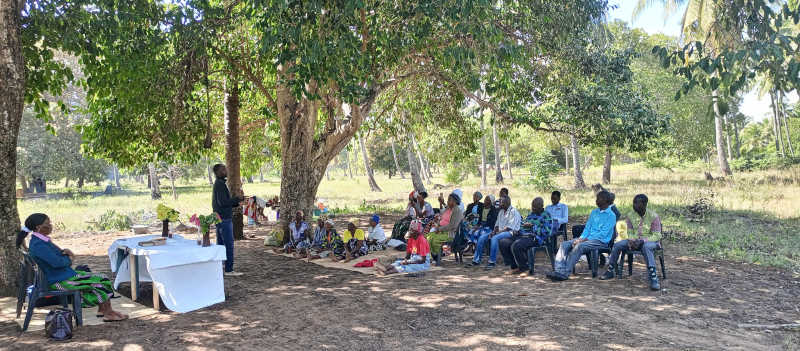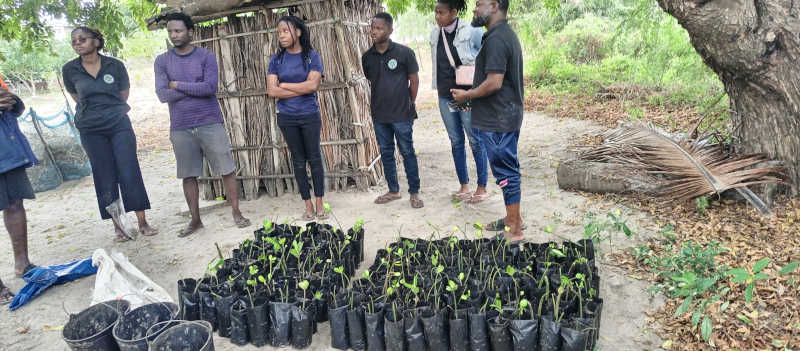News
Many ALMA Friends will know Father Aurelio Uqueio, who is the IAMA Environment and Green Anglican Co-ordinator. He is based in Maxixe in Inhambane Diocese where the impact of climate change and the climate crisis is a daily reality. ALMA supported him through his degree in Environmental Studies and he is a wonderful champion of local awareness raising and action, alongside global advocacy. Here are his reflections for COP30. Let us know if you would like to read his dissertation on coastal erosion and mangroves.
Local Impacts
My personal experience, and that of my family and community.
In Mozambique, due to its geographical location, communities are cyclically affected by rising temperatures, droughts, floods and other extreme events.
For example, in 2022 we experienced rising sea levels and flooding in Maxixe, where my pastoral residence was severely affected and partially destroyed, forcing us to postpone a wedding. The Diocesan Offices were partially destroyed and most of the Church’s documents were lost. Ninety-six families from my Parish lost their homes (67 partially destroyed and 27 completely destroyed). It was deeply tragic, and there was a prolonged struggle to rebuild and recover belongings. Farmlands were completely destroyed, with severe erosion.
Our communities depend entirely on small-scale family farming. Unfortunately, due to the heatwave in 2023, all the crops (maize, peanuts and beans) were burned. This has resulted in two consecutive years of extreme hunger in our communities. Because of this and other factors, some young people were forced to seek refuge in the city of Maputo or in neighbouring South Africa in search of better conditions.
Due to the strong storms that hit in 2024, two Primary Schools and a Health Centre (Hospital) were drastically affected, and their reconstruction remains uncertain. All services are currently operating under trees.
Great suffering.
To stop or mitigate the advance of the sea, we are planting mangroves and casuarinas along the shoreline of the Chambone Mission (Maxixe). From 2017 to 2025 we have planted 2,158 mangrove seedlings, and from 2023 to 2025 we planted 123 casuarinas. We are also planting fruit trees and cashew trees, and at this point we have planted around 818 trees, which, in addition to sequestering carbon, could improve the communities’ diet.
We created a mechanism to educate and motivate young people to participate in these activities through sports—mainly football and beach volleyball—where the “entry fee” is simply a bag of rubbish. This approach has produced excellent results.

I would like to take this opportunity to request support with materials for these two sports (football and beach-volleyball balls and nets), if possible.
Prayers and Reflections
We hold services on the beach with the intention of connecting young people to God the Creator. We always celebrate the main environmental days (Earth Day, Water Day, Biodiversity Day, Animal Day, Environment Day, Season of Creation) in open places (markets, schools, etc.), offering talks and planting trees along some of the city’s avenues.

God is calling the Church globally to:
Note: At this moment I am experimenting with cultivating local mangrove seedlings, starting on 25 September. So far, the results have been very positive. This experiment aims to avoid bringing mangrove seedlings from another region with completely different soil and climate. With this approach, we will have seedlings from the same region, same soil and same climate, which will greatly reduce losses due to adaptation time.
Pray for this PROJECT, which tomorrow may become a SCIENTIFIC PROJECT. For now, it is a dream.
